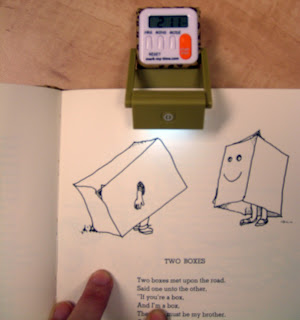
The
American Academy of Pediatrics recently released
new guidelines for the diagnosis and treatment of ADHD (Attention Deficit Hyperactivity Disorder). These are intended to update and integrate two separate sets of guidelines for the diagnosis and treatment of attention difficulties which date to 2000 and 2001, respectively.
The new guidelines still rely upon the definition of ADHD that appears in the
Diagnostic and Statistical Manual of Mental Disorders (DSM), published by the
American Psychiatric Association. We have not been big fans of relying solely on this approach to diagnosis, which involves counting symptoms of inattention, hyperactivity, and impulsivity and then looking to see if these symptoms have been present for a number of months in more than one setting (such as both in school and at home). While this approach can be very helpful, we don't think it goes far enough towards truly understanding how attention impacts behavior and learning.
We have always preferred to look at attention from a different, more functional perspective, which considers three primary areas -- mental energy controls, processing controls, and production controls. Within each functional area, we break down areas of strength and weakness, so that we consider a broad array of skills and competencies.
When we look at mental energy controls, we consider not just attentional consistency, but also alertness, mental work stamina, and sleep/arousal balance. We sometimes discuss these factors in terms of whether an individual has sufficient cognitive "fuel" to power their tasks.
When we look at the processing controls of attention, we examine such areas as saliency determination, processing depth, focus on detail, cognitive activation, focal maintenance, and satisfaction levels. These considerations can be viewed as the camera lens that a student will bring to his or her work. Does it focus at the right depth for the task at hand?
We examine production controls by reviewing an array of skills which include previewing, facilitation, pacing, self-monitoring, and inhibition. These are the "output" skills that impact academic performance and classroom behavior.
As a practical matter, we believe that looking at functions is a more helpful approach than just counting symptoms, and the new AAP guidelines do seem to move in that direction. For example, they urge that physicians look at other causes for the symptoms commonly attributed to ADHD, such as learning, emotional, and physical conditions. They also note that special consideration needs to be given to both young children and teens, and they expand the age range in which attention problems should be considered to ages 4-18 (from ages 6-11). The new guidelines also acknowledge advances in medication for attention problems and offer guidelines for physicians as to the best initial approaches for children of varying age groups.













